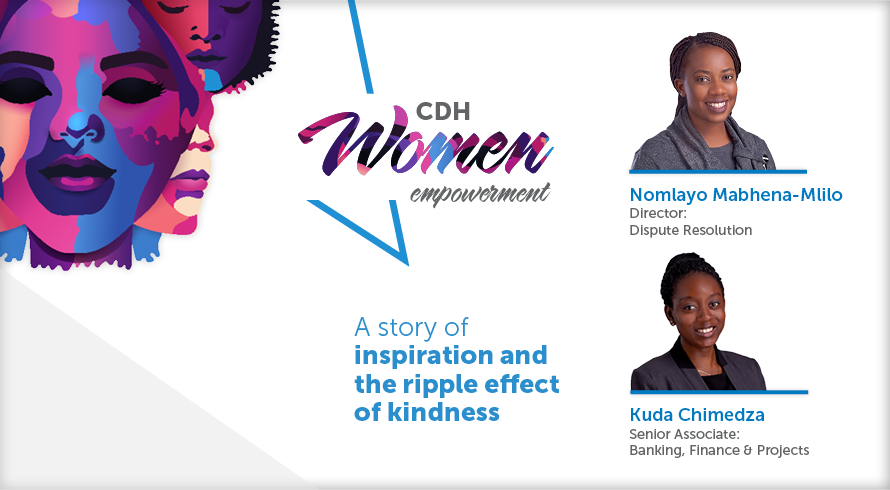Retrenchments: Transformation, a selection criterion?
At a glance
- Section 189(1) of the Labour Relations Act requires employers to consult with affected parties, including trade unions, when considering dismissals based on operational requirements.
- If the consulting parties cannot agree on selection criteria for dismissals, the employer must use fair and objective criteria.
- The Constitutional Court clarified that the consultation process must be meaningful, even if consensus is not reached. Disputes about procedural fairness are separate from disputes about compliance with fair procedure and must be adjudicated differently.
Where the consulting parties have agreed on the selection criteria to be used, the employer is obliged to implement the criteria. However, where no agreement can be reached between the consulting parties, the employer is obliged to use criteria that is fair and objective. This legal position has been crystallised by the Constitutional Court (CC) in its recent judgment of Solidarity obo Members v Barloworld Equipment Southern Africa and Others [2022] ZACC 15I.
Evaluating substance vs procedure
On 27 April 2020, Barloworld notified its employees, including Solidarity’s members, of its intention to restructure its operations resulting from the impact of COVID-19. Shortly thereafter, Barloworld lodged a request with the Commission for Conciliation, Mediation and Arbitration (CCMA) for it to facilitate a joint consensus-seeking process between the affected parties and Barloworld. During the consultative process that ensued. Solidarity took issue with the proposed selection criteria – specifically, the inclusion of transformation as part of the selection criteria.
Solidarity and the National Union of Metalworkers of South Africa (NUMSA) approached the Labour Court in separate applications contending procedural irregularities in the consultation process. One of the issues challenged by Solidarity was Barloworld’s failure to consult on various issues, including transformation as a selection criterion. This was unlawful and amounted to unfair discrimination. NUMSA contended that the process was flawed in that Barloworld had failed to disclose information that was essential to enable its effective participation; there had been no meaningful consultation on alternatives to retrenchment; there had been no joint consensus-seeking consultation on the selection criterion; and Barloworld had called workers to interviews without furnishing them with important information that they needed prior to attending the interviews.
The Labour Court distinguished between procedural fairness and compliance with fair procedure which is what is envisaged in section 189A(13) of the LRA. Disputes of procedural fairness go beyond the employer’s statutory obligations alone and are excluded from the ambit of section 189A(13). The primary remedy envisaged by section 189A(13) is compliance, which is no longer possible once the consultation process is concluded. Solidarity and NUMSA’s complaints did not raise compliance issues, but rather general issues related to procedural and substantive fairness.
The court also held that in its view transformation is not a selection criterion, per se, and that Solidarity’s complaint, properly construed, related to substantive fairness. The court reasoned that the issue of which selection criteria to apply is one of substance and not procedure. It then stated that Solidarity had a right, in terms of section 189A(7)(b)(ii), to refer the dispute as to whether there was a fair reason for the dismissal to the court in terms of section 191(11) of the LRA. The court also held that the issues raised by NUMSA were issues of substance.
Before the Constitutional Court
Solidarity’s petition was refused by the Labour Appeal Court. It then approached the CC on the basis that it had jurisdiction as it concerned the proper interpretation of sections 189 and 189A(13) of the LRA which were underpinned by the right to fair labour practices. Barloworld disagreed.
The CC held that there was meaningful joint consensus-seeking consultation in that, on the evidence before it, Barloworld genuinely and meaningfully considered the representations made by Solidarity. Parties only need to seek consensus and do not necessarily need to agree. Solidarity rejected the inclusion of transformation in the selection criteria, with the effect that the parties deadlocked on the issue. The failure to reach consensus or agreement did not necessarily mean that the consultation process was not meaningful.
The CC also considered whether failure to present the selection criteria matrix led to a conclusion that the consultation process was procedurally unfair. Once the parties had deadlocked, the next step was for Solidarity to approach the Labour Court in order for it to adjudicate on the substantive fairness of relying on transformation as part of the selection criteria.
In relation to the distinction between procedural fairness and compliance with fair procedure, the CC reiterated that the Labour Court may not adjudicate a dispute about the procedural fairness of a dismissal based on the employer’s operational requirements in any dispute referred to it in terms of section 191(5)(b)(ii). Disputes about procedural fairness, as a distinctive claim or cause of action, that a dismissal on the basis of operational requirements was procedurally unfair, are removed from the adjudicative reach of the Labour Court. In order for the Labour Court to adjudicate a claim of the unfairness of a procedure in dismissals for operational requirements, the court must be approached in terms of section 189A(13) on the basis of non-compliance with the procedures prescribed by sections 189 or 189A of the LRA.
Finally, the CC differed with the Labour Court on the timing of the referral – that is, after the consultation process had been concluded. Section 189A(17)(a) of the LRA provides that “an application in terms of subsection (13) must be brought not later than 30 days after the employer has given notice to terminate the employees’ services or, if notice is not given, the date on which the employees are dismissed”. The referral was made timeously.
The information and material published on this website is provided for general purposes only and does not constitute legal advice. We make every effort to ensure that the content is updated regularly and to offer the most current and accurate information. Please consult one of our lawyers on any specific legal problem or matter. We accept no responsibility for any loss or damage, whether direct or consequential, which may arise from reliance on the information contained in these pages. Please refer to our full terms and conditions. Copyright © 2025 Cliffe Dekker Hofmeyr. All rights reserved. For permission to reproduce an article or publication, please contact us cliffedekkerhofmeyr@cdhlegal.com.
Subscribe
We support our clients’ strategic and operational needs by offering innovative, integrated and high quality thought leadership. To stay up to date on the latest legal developments that may potentially impact your business, subscribe to our alerts, seminar and webinar invitations.
Subscribe




